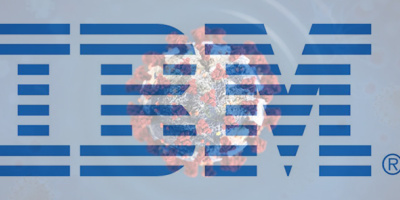MC Press labels this space "Tech Tirades." Yet, on reflection, I realize that my past articles have typically been much more comic than acerbic. I'm going to try to make up for that long-standing, cumulative deficiency in one fell swoop with this week's column. That loud throbbing you hear is Victoria's (the editor's) heart pounding as she worries about how many of my sentences, if any, she will be allowed to leave intact under MC Press' editorial policy. Hey, Victoria, you branded them as tirades. What, exactly, did you expect?
Warning: Some people might find a few of the statements below to be disconcerting and possibly even odious. Rest assured that it is not my intent to offend anyone holding a particular ideology. Instead, I prefer to antagonize holders of all creeds uniformly. I'm an equal opportunity ranter.
But first, as is my wont, before I launch into my tirade, I'm going to lead with a somewhat more light-hearted anecdote from the recent news.
This is mission control. The countdown has begun. We are six paragraphs from tirade launch. That's T minus six paragraphs and counting.
An article in the July 18 edition of The New York Times discussed the efforts of a number of researchers and engineers to marry robots and artificial intelligence. It listed as one example the work of some computer scientists at Stanford University who are developing a robot that, with the help of artificial intelligence, will, along with performing other household chores, be capable of building a piece of Ikea furniture.
T minus five paragraphs.
This sounds like a very noble pursuit to me. I bear deep emotional and physical scars from my many stabs at assembling Ikea furniture over the years. I usually get the job done eventually, but only after several failed attempts that cannot be completed without my repeatedly shouting at the top of my voice every swear word I know. And I know a lot of swear words.
T minus four paragraphs.
I've become convinced that those picture-laden sets of instructions that Ikea provides are randomly generated by a computer and have absolutely nothing to do with successfully assembling the product. The only possible theory I've been able to come up with to explain why the company is doing this is that "Ikea" is really a Swedish swear word and those fun-loving Swedes are playing a practical joke on those of us who don't speak the language. Maybe I should start shouting "Ikea" when I try to assemble some of their stuff. At least then I won't offend any of the non-Swedish-speakers within the 10-block radius that defines "earshot" under these circumstances.
T minus three paragraphs.
Getting back to the New York Times article, it suggested that robot smarts will likely make great leaps forward in the future because researchers at the École Polytechnique Fédérale de Lausanne in Switzerland are building huge computer models to study the functioning of the human brain. It's presumed that once they achieve a greater understanding of how the human brain works, scientists will be able to apply that knowledge to build better robot brains.
T minus two paragraphs.
I'm skeptical about this being the right approach. In fact, I think that all of these scientists should get together, hold a meeting, and make a management decision about whether it really is wise to model robotic brains on human brains. Oh, wait. Maybe they shouldn't make that decision unaided. An unrelated article in the same issue of The New York Times reported that a sociology professor at the Eindhoven University of Technology in the Netherlands, who has been researching the routine decisions of managers, has, after much study of management decision-making, come to the conclusion that computer algorithms usually make better decisions than human managers. And these algorithms are not based on advanced artificial intelligence.
This is mission control. At T minus one paragraph, we confirm primary tirade ignition.
The fact that computer programs without the aid of artificial intelligence might—I stress might; it's only theory at this point—usually make better decisions than humans is not why I doubt that it's wise for computer scientists to model robotic smarts on human smarts. So what is my qualm? I'm glad you asked.
This is mission control. We have tirade liftoff. I repeat. We have tirade liftoff.
What the hell is the matter with these stupid people? Don't they ever look up from their programming long enough to read a freaking newspaper? What in the world would ever make these geniuses think that using human intelligence as a blueprint for artificial intelligence is a bright idea? Are they totally deranged?
Over the course of human history and continuing today, what has our intelligence wrought? It's led despotic dictatorships in third-world countries to fight barbaric, corrupt, power-hungry rebels in order to determine which bunch of brutal thugs is going to rule over some bleak patch of land in a place that civilization forgot. And this is the product of the same biological intelligence that computer scientists want to model? Give me a break. But wait. I'm not finished.
While these tyrannical governments and the reprehensible rebels fighting them both spend enormous sums to buy weapons to kill the other guys along with a lot of unaligned bystanders, most of the people they want to rule over are at least malnourished and often outright starving, with very few of them having any hope of ever clawing their way out of the poverty that engulfs them.
Many of the few people in these war-ridden countries who are not starving are dying of malaria, despite the fact that insecticide-treated bed nets, which cost less than $6 a piece to put into the field, have, according to the U.S. Centers for Disease Control and Prevention, been shown to reduce mortality by about 20%.
Even this understates the problem. While the majority of the country's gross national product is being shoveled into weapons acquisition, many of its citizens are not dying of only starvation or only malaria. They are in a hard-fought race to determine which of the two—or which other preventable or treatable disease—will kill them first, assuming, of course, that the government's or the rebels' arsenal doesn't get them before that. That's human intelligence in action.
Oh yes, and that same great human brainpower is also represented inside terrorists who indiscriminately massacre thousands of innocent people around the world in order to advance their viewpoint in the age-old argument that follows something along the lines of, "My god can beat up your god. ... Cannot. ... Can too."
Some of these oppressors (both the terrorists and the more traditional kind) are funded at least partially by the drug trade, which involves more money than the gross domestic product of several countries combined. Most of the money ultimately comes from people who knew full well, or should have known full well, the severely addictive, debilitating properties of the drugs before they started using and becoming addicted to them. And what's the government's response? The government's response is to redouble its efforts to follow exactly the same policies that have been proven beyond a shadow of a doubt to not work worth a damn in the past. How's that for higher brain function?
All of that is a bit heavy. Let's lighten things up a bit. Closer to home, on a frivolous note—or at least frivolous compared to despots, death, and drugs—American broadcast television networks and individual stations when they're broadcasting local programs must pay enormous fines if they allow any of a number of words that I won't catalog here (exhale, Victoria) to go out on the airwaves or if they display the wrong body part, inadvertently or otherwise. Contrary to the belief that some people expressed when I mentioned this subject in the past, I'm not arguing against this regulatory policy, but I do think it's a bit incongruous when, at the same time, if the networks and stations run a show overflowing with people shooting and blowing up each other, glorifying death and destruction in the process, that's considered fine family fare, as long as the good guys and the bad guys don't swear when they're mortally wounded and writhing in pain and provided that the bullets and bombs don't rip the wrong pieces of clothing off while they're killing people. Sorry, that was a slip of the tongue or, to be more precise, a slip of the fingers. I forgot. Guns and bombs don't kill people. People kill people. But you get my point. That's just one more product of the great human cerebral capacity that computer scientists want to replicate in silicon.
I should note that these television rules apply to only the old over-the-air broadcasters. My understanding is that the specialty cable and satellite channels are free to broadcast pretty much whatever they want. I guess the regulators think that these newer broadcast methods emit some sort of signal that immunizes children against the evil effects of swearing and nudity, an immunity that isn't induced by the over-the-air channels.
OK, you say, those are things that are imposed on us by outside forces, but, individually, we citizens are much more clever than that. Oh, really? The glorious human mind has created a society in which a large number of people think that the most important news of the day is a report on where Paris Hilton had dinner last night, what she was wearing, who she was with, and what they ate. I've never met Ms. Hilton. I know very little about her, and I have nothing against her. For all I know, out of the public eye she may be a truly wonderful person, but I don't care any more about the minutiae of her life than she does about mine. And the more important point is that neither of us should care.
Here's another disconcerting thought about the state of civilization. As large as the number of people who are obsessed with the personal lives of celebrities may be, an even larger contingent acts as if they think that the pinnacle of western culture is American Idol. Now, what does that say about human intellect?
I know what you're asking. If I don't think that computer scientists should try to model artificial intelligence on human intelligence, where do I think they should direct their efforts? I haven't got a clue. I lack the necessary intelligence to determine that. Discuss it among yourselves in the forum attached to this article if you wish. As for me, I'm going to sign off because, not being one to waste valuable resources, now that I've worked myself into a really good lather, I'm going to go shave.
This is mission control. We have tirade touchdown. I repeat. The tirade has landed.
Joel Klebanoff is a consultant, a writer, and president of Klebanoff Associates, Inc., a Toronto, Canada-based marketing communications firm. He is also the author of BYTE-ing Satire, a compilation of a year's worth of his columns. Joel has 25 years experience working in IT, first as a programmer/analyst and then as a marketer. He holds a Bachelor of Science in computer science and an MBA, both from the University of Toronto. Contact Joel at
























 More than ever, there is a demand for IT to deliver innovation. Your IBM i has been an essential part of your business operations for years. However, your organization may struggle to maintain the current system and implement new projects. The thousands of customers we've worked with and surveyed state that expectations regarding the digital footprint and vision of the company are not aligned with the current IT environment.
More than ever, there is a demand for IT to deliver innovation. Your IBM i has been an essential part of your business operations for years. However, your organization may struggle to maintain the current system and implement new projects. The thousands of customers we've worked with and surveyed state that expectations regarding the digital footprint and vision of the company are not aligned with the current IT environment. TRY the one package that solves all your document design and printing challenges on all your platforms. Produce bar code labels, electronic forms, ad hoc reports, and RFID tags – without programming! MarkMagic is the only document design and print solution that combines report writing, WYSIWYG label and forms design, and conditional printing in one integrated product. Make sure your data survives when catastrophe hits. Request your trial now! Request Now.
TRY the one package that solves all your document design and printing challenges on all your platforms. Produce bar code labels, electronic forms, ad hoc reports, and RFID tags – without programming! MarkMagic is the only document design and print solution that combines report writing, WYSIWYG label and forms design, and conditional printing in one integrated product. Make sure your data survives when catastrophe hits. Request your trial now! Request Now. Forms of ransomware has been around for over 30 years, and with more and more organizations suffering attacks each year, it continues to endure. What has made ransomware such a durable threat and what is the best way to combat it? In order to prevent ransomware, organizations must first understand how it works.
Forms of ransomware has been around for over 30 years, and with more and more organizations suffering attacks each year, it continues to endure. What has made ransomware such a durable threat and what is the best way to combat it? In order to prevent ransomware, organizations must first understand how it works. Disaster protection is vital to every business. Yet, it often consists of patched together procedures that are prone to error. From automatic backups to data encryption to media management, Robot automates the routine (yet often complex) tasks of iSeries backup and recovery, saving you time and money and making the process safer and more reliable. Automate your backups with the Robot Backup and Recovery Solution. Key features include:
Disaster protection is vital to every business. Yet, it often consists of patched together procedures that are prone to error. From automatic backups to data encryption to media management, Robot automates the routine (yet often complex) tasks of iSeries backup and recovery, saving you time and money and making the process safer and more reliable. Automate your backups with the Robot Backup and Recovery Solution. Key features include: Business users want new applications now. Market and regulatory pressures require faster application updates and delivery into production. Your IBM i developers may be approaching retirement, and you see no sure way to fill their positions with experienced developers. In addition, you may be caught between maintaining your existing applications and the uncertainty of moving to something new.
Business users want new applications now. Market and regulatory pressures require faster application updates and delivery into production. Your IBM i developers may be approaching retirement, and you see no sure way to fill their positions with experienced developers. In addition, you may be caught between maintaining your existing applications and the uncertainty of moving to something new. IT managers hoping to find new IBM i talent are discovering that the pool of experienced RPG programmers and operators or administrators with intimate knowledge of the operating system and the applications that run on it is small. This begs the question: How will you manage the platform that supports such a big part of your business? This guide offers strategies and software suggestions to help you plan IT staffing and resources and smooth the transition after your AS/400 talent retires. Read on to learn:
IT managers hoping to find new IBM i talent are discovering that the pool of experienced RPG programmers and operators or administrators with intimate knowledge of the operating system and the applications that run on it is small. This begs the question: How will you manage the platform that supports such a big part of your business? This guide offers strategies and software suggestions to help you plan IT staffing and resources and smooth the transition after your AS/400 talent retires. Read on to learn:
LATEST COMMENTS
MC Press Online